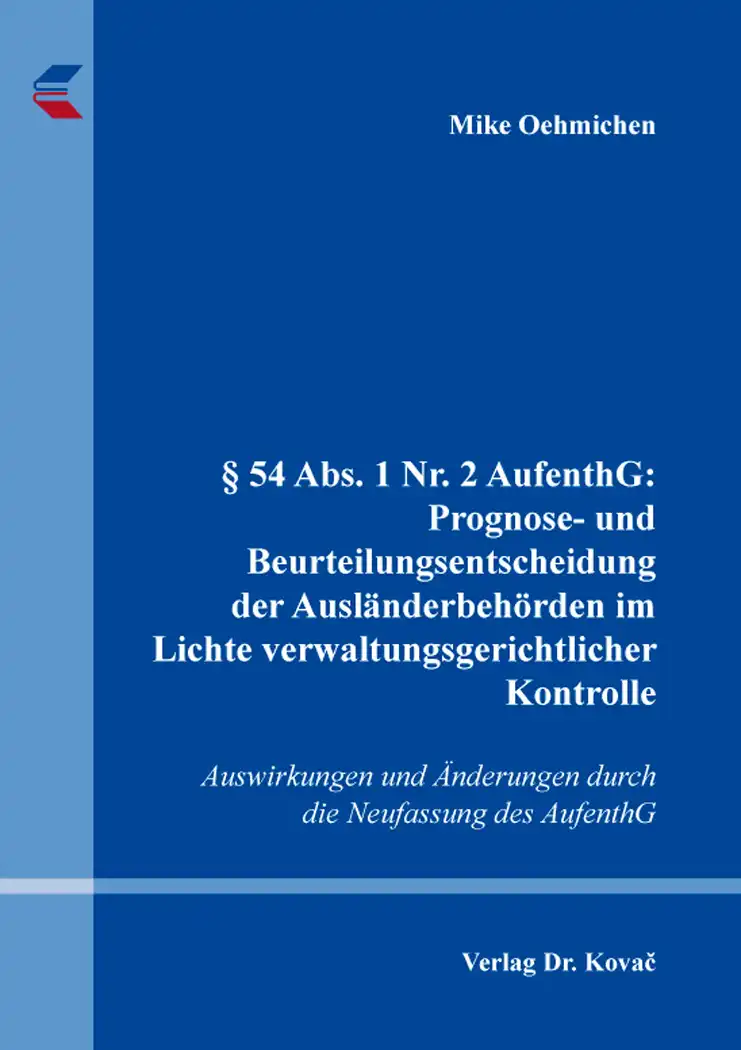Mike Oehmichen§ 54 Abs. 1 Nr. 2 AufenthG: Prognose- und Beurteilungsentscheidung der Ausländerbehörden im Lichte verwaltungsgerichtlicher Kontrolle
Auswirkungen und Änderungen durch die Neufassung des AufenthG
Studien zum Verwaltungsrecht, volume 80
Hamburg 2024, 300 pages
ISBN 978-3-339-13844-6 (print) |ISBN 978-3-339-13845-3 (eBook)
About this book englishenglish
The Federal Republic of Germany has been in the focus of international Islamist terrorism not only since the attacks in Würzburg, Berlin, or Hamburg. Considering the political developments abroad, the risks of potential attacks are unlikely to decrease in the future. More consistent deportations and expulsions of suspected terrorists to their countries of origin are expected to play an increased role after political and societal debates.
However, the corresponding deportation regulation of § 54 para. 1 No. 2 AufenthG (Residence Act) was subject to constant legal controversies until 2016. Administrative courts, as well as the Federal Constitutional Court, have attempted to interpret the rigid three-tiered deportation system (discretionary, regular, and mandatory deportation) in a constitutionally compliant manner, taking into account the repeated jurisprudence of the European Court of Human Rights (ECtHR), with regard to the respective individual case. The already complex matter of deportation law was significantly complicated by these decisions and the sometimes conflicting wording of the law.
The legislatively consistent attempt to reformulate the deportation provisions resulted, at least at first glance, in profound substantive and systematic changes in the structure. Thus, instead of the previously applicable three-stage deportation system, a unified deportation ground norm, § 53 AufenthG, now allows for comprehensive interpretation. In the interest of individual justice, deportation interests (§ 54 AufenthG) and residence interests (§ 55 AufenthG) of the respective individual are to be weighed against each other.
This paper aims to illuminate to what extent this new regulation represents a significant development within the framework of judicial control and provides meaningful guidance to the immigration authorities.
Keywords
AbwägungAufenthaltsrechtAusländerbehördenAusweisungBesonderes VerwaltungsrechtBeurteilungsermessenEGMRGerichtliche KontrolleÖffentliches RechtStufensystematikTerrorismusVerdachtVerfassungIhr Werk im Verlag Dr. Kovač

Möchten Sie Ihre wissenschaftliche Arbeit publizieren? Erfahren Sie mehr über unsere günstigen Konditionen und unseren Service für Autorinnen und Autoren.
